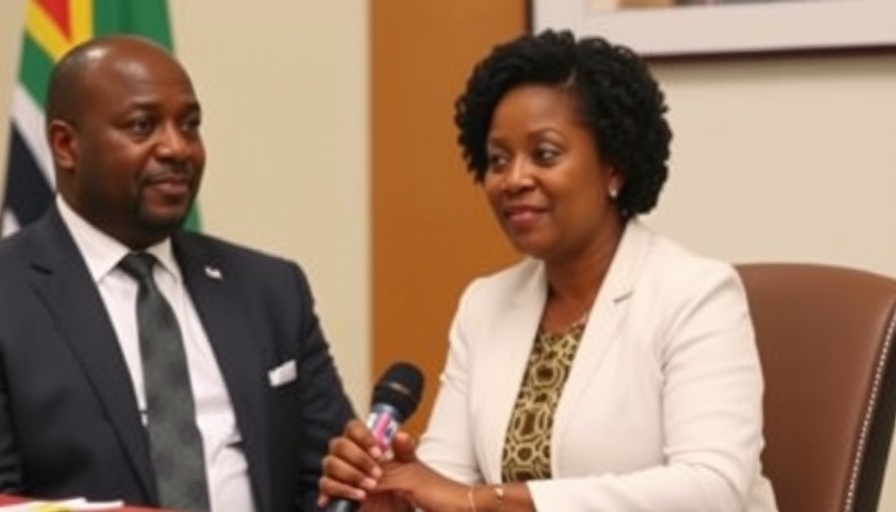
Understanding BOSA's Budget Proposal
In a significant move during the latest budget discussions with the African National Congress (ANC), the Build One South Africa (BOSA) party has outlined alternatives to the proposed hike in Value-Added Tax (VAT). This proposal is positioned within the ongoing discussions about economic stability and growth as South Africa gears up for the 2024 general elections. As the government navigates the complexities of fiscal policy amidst a backdrop of rising inflation and shrinking economic growth, the potential implications of any tax increase are particularly pressing, especially for the working class.
Context: The South African Economic Landscape
The South African economy has been under strain due to several factors, including high unemployment rates, particularly among youth, income inequality, and public sector challenges. The Finance Minister has indicated that increasing VAT could be a measure to address budget deficits; however, such a step is fraught with risks. As noted by BOSA's leadership, any direct tax increase can have detrimental effects on consumer spending and could exacerbate existing social challenges, particularly in education and health sectors.
BOSA's Alternative Measures: A Steady Approach?
BOSA has suggested alternatives to a VAT hike that focus on tightening fiscal responsibility, enhancing service delivery, and improving governmental transparency. Their proposals include reforms that better target social grants to vulnerable communities and initiatives for increasing employment opportunities through public works and infrastructure projects. The push for more efficient use of public resources aligns with their broader agenda of promoting economic stability without putting further financial strain on citizens.
Political Ramifications: Coalition Dynamics
The dynamics within South Africa's coalition government have made discussions on budgetary policies more complex. BOSA's stance may resonate with some opposition parties like the Democratic Alliance (DA) and Economic Freedom Fighters (EFF), who also advocate against regressive tax policies. Understanding these relationships is crucial as election season approaches, where voter turnout could pivot on economic promises and perceived governance efficacy.
The Broader Context of Corruption and Governance
With echoes of state capture and corruption scandals such as those surrounding Jacob Zuma's presidency still affecting public sentiment, BOSA's proposals are also framed within the necessity for enhanced accountability and transparency in governance. Voter engagement is palpable, especially as the country grapples with calls for constitutional amendments aimed at tackling systemic corruption and restoring trust in parliamentary processes.
Future Predictions: What This Means for South African Politics
As the ANC, led by President Cyril Ramaphosa, prepares for the next general elections, the outcome of these budget proposals may significantly influence their electoral strategy. With BOSA and other opposition parties revealing their financial plans, the ANC must navigate carefully to address both fiscal concerns and the need for reform. Moreover, the role of independent oversight and civil society engagement will be critical to fostering a robust electoral environment.
Potential Public Reaction and Actionable Insights
How the public perceives these budget discussions could determine the political landscape heading into the 2026 municipal elections. Calls for public engagement through town hall meetings or community forums could be encouraged to gather diverse perspectives, ensuring that the voices of everyday South Africans are heard. Engaging constituents now could lay the groundwork for previously neglected needs such as land reform, educational investment, and public healthcare improvement.
As debates on fiscal policy continue, South Africans are urged to stay informed and involved, pushing for transparency and accountability within governmental financial decisions. The ongoing discussions represent not just budgetary adjustments but a fundamental aspect of governance that could reshape the country’s future.
With the upcoming elections, becoming involved in grassroots movements and advocating for policies that promote inclusivity and economic stability may prove vital for constituents everywhere. South Africans must remain vigilant, demanding better governance and accountability from their elected officials.
 Add Row
Add Row  Add
Add 




Write A Comment